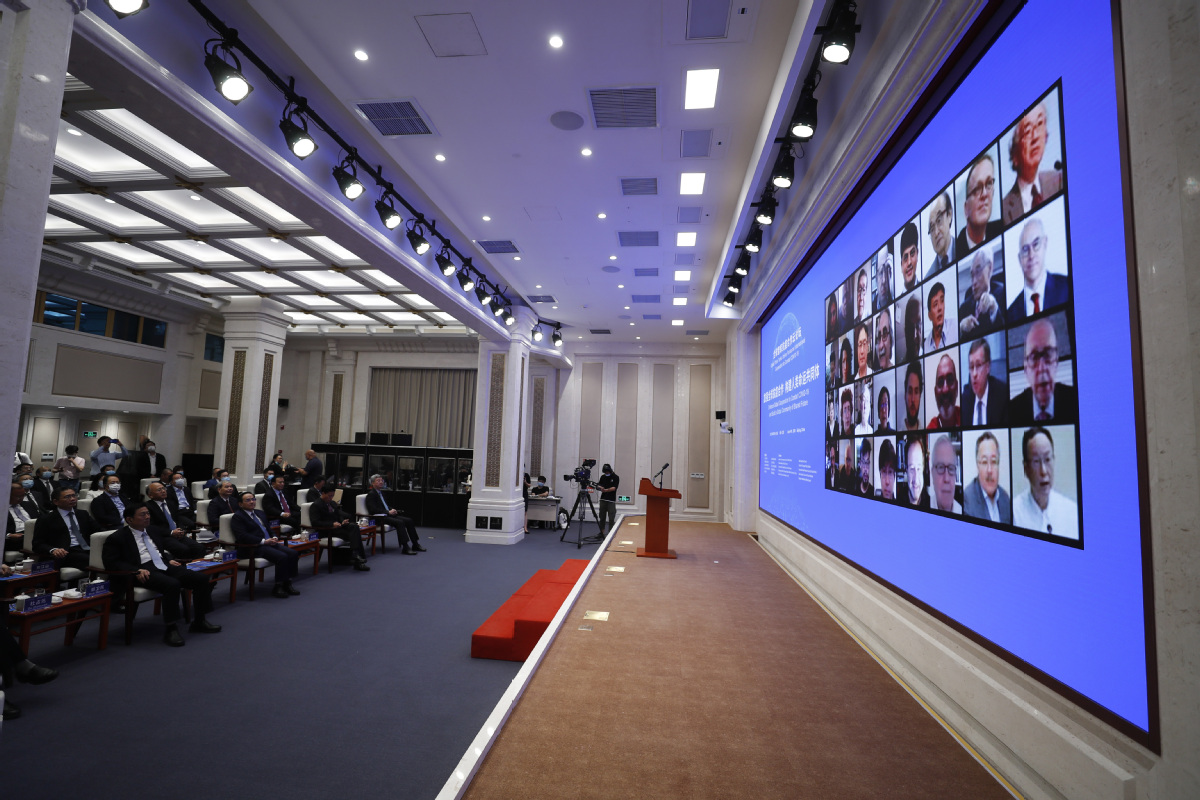Challenges cited in worldwide virus fight


China should continue to play a key positive role in promoting global cooperation against COVID-19 and championing global multilateralism, experts said in a webinar hosted by the Center for China and Globalization on Wednesday.
The big challenges in the global fight against the pandemic include a lack of strong global leadership, a weakened global supply chain and a dearth of trust between governments, they said. The solutions will come from a new wave of globalization that is more inclusive, collaborative and sustainable.
Michele Geraci, former undersecretary of state at the Italian Ministry of Economic Development, said there has been a pervasive misconception that public health and the economy are in conflict, and one must choose one at the expense of the other.
"I believe those two goals are not in conflict with each other," he said, adding proper measures such as lockdowns and quarantines can save valuable time and lives and allow the economy to restart sooner.
At the same time, due to the quarantine, people-to-people interaction has moved from the tangible world to cyberspace, which may not be very effective for building trust and sharing nuanced ideas, he said.
Therefore, international frameworks, such as the Belt and Road Initiative, are more significant than ever.
"The BRI is more than a road of trade, it can also be a road for culture and health and can be used to lower the frictions between countries along the initiative," he said.
Laurence Brahm, founding director of the Himalayan Consensus Institute, said COVID-19 caught the world off guard, and time is needed to understand the danger and potency of the virus. But China reacted swiftly once it understood the situation, he added.
"What is not very well understood outside of China is the extent the whole of Chinese society was united under one cause: to fight the COVID-19 epidemic," he said.
Brahm said this unity stemmed from Chinese traditional values in which Confucianism taught people to cooperate as a group, Taoism taught the value of being cognizant of change and responsive to it, and Buddhism taught that all lives are equal.
"We need more of these spirits internationally. Every single life is important, but not every county has taken this position," he said.
Ji Hongbo, the Asia Foundation's country representative for China, said the country has played a very important role in combating COVID-19 both at home and abroad, especially in relation to its private sectors and civil societies.
From March to early May, nearly half the donations from China given to other countries in the form of assistance packages came from the nongovernment sectors, she said.
"Civil societies between China and the US are also working together to fight COVID-19," she said. "China has been a very good international and responsive player, and it should continue to help the world against the pandemic."
Brahm also said the politicizing of the pandemic, distortion of society's interaction with the environment and public health, and a decoupling attitude toward globalization are some of the major obstacles in overcoming the current health crisis.
Anushka Prasad, founding director of the China India Foundation in India, said the COVID-19 pandemic has exposed "a crisis in leadership" in the global response.
"We are only as strong as our weakest link," she said, adding that world leaders should be more humble and willing to take up leadership roles to seek solutions from all countries, and try to do more with fewer resources.
- HK bets on integrated hub to enhance TCM profile
- China widens net in battle against graft
- New US dietary guidelines trigger widespread concern
- China eyes space leap with record satellite filings
- Team formed to investigate the loss of 29 cultural relics
- Investigation into school uniforms confirms safety of waterproof layer





































